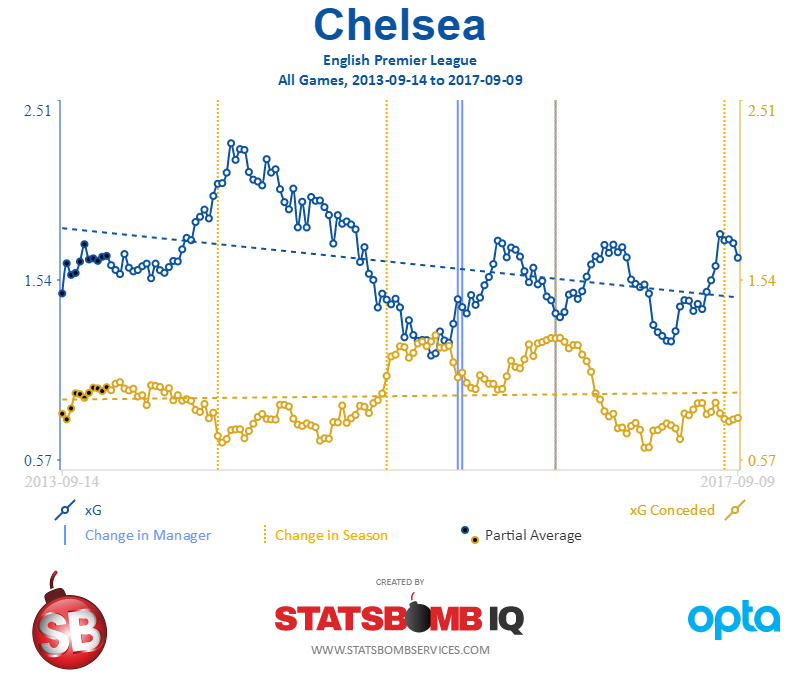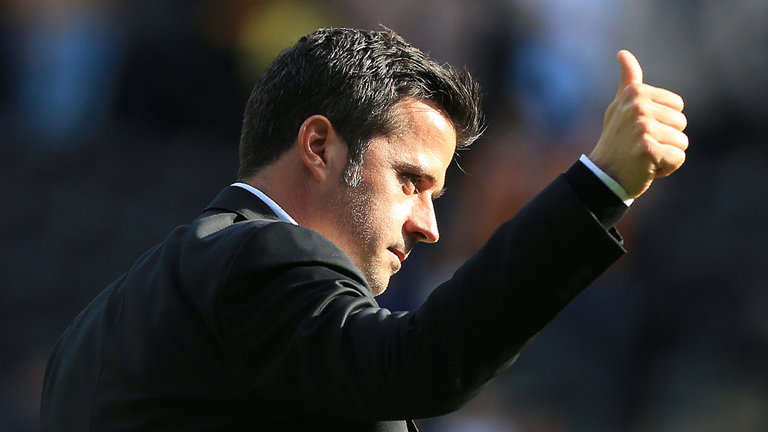Yesterday I discussed what you actually get when you hire a new head coach or manager. Today I want to talk about a better way to go about hiring the most important position in the club.
Manager/Head Coach Searches is one of our core offerings at StatsBomb Services, and the feedback we’ve had from clients has been overwhelmingly positive. Because of how messy and haphazard normal coaching searches tend to be, I thought it would be good to shed some light on our process and why that’s a dramatic improvement over the status quo.
On What Criteria Are New Head Coaches Normally Hired?
- Reputation (They were a big name player. They worked before at a big club.)
- Their teams always managed to beat ours when we play them
- Advice from friendly coaches on who would be good
- Advice from friendly agents
- Past Success
The last one is the only factor that actually matters, but it's usually the product of a lot of confounding factors that can be difficult to separate from managerial impact (budget, luck, players, etc). The rest of these are potential disasters in one form or another that don’t do anything to help find what you actually need at the top of your club.
On What Criteria Should New Head Coaches Be Hired?
- Do they fit our current club needs? (Some managers would be terrible mid-season hires for relegation threatened teams, but great ones if you get them at the start of the year.)
- Does their tactical style match what we want to do as a club?
- Have their teams actually been good?
- Do we have the budget to recruit for them so WE can succeed?
- Does their personality work within our structure?
- Do they speak the language? How do we overcome this for candidates who don’t?
- Can they communicate clearly with players? With management?
- Can they develop younger players?
There are a host of other criteria a club might care about but these are most of the major ones. Notice how reputation has absolutely nothing to do with any of these.
We care about facts. Data. Objective, actionable information that helps you make decisions. The club itself can decide to care about reputation as well, but we feel strongly that it’s only a minor part of the new coach equation.
How Do You Find A New Head Coach?
When we start this process with clients, one of the first things I ask is, “Do you have an ideal club style you want to play?”
Get rid of concrete examples at the beginning because when you are dealing with the entire world as your potential hiring market, it doesn’t make sense to initially limit yourself. Start with the concept… what would you LIKE to do? What is your academy producing? Why? Should it be aligned with the first team style, or should you keep it more generic in case something changes down the road? How does that change what you are looking for in a head coach now and in the future?
Once you flesh out the conceptual ideal, then you can start the practical discussions.
- Do you have the squad to play this style currently?
- If not, will you recruit players that can execute it in the next window?
- Do you need a bridge coach between what you have currently and where you would like to end up?
- What does your salary budget look like?
Once you’ve fleshed out what the club wants/needs/is actually looking for, then you start the multi-layered search process.
The first layer data analysis. We have a number of models we use to evaluate manager and team performance over time and compare that to expectation based on budget and squad strength. We can also accurately profile tactical styles to find better candidates that meet club requirements who may be off the beaten path.

Another layer is the usual avenues that potential names come in, via friendly coaches, DoFs, agents, whatever. We’re not discounting these as viable, interesting recommendations – we’re simply applying more scrutiny to them than they might normally get.
Then you throw everyone into a hopper and start to evaluate how closely each name fits the job requirements, quickly coming to a long list of potential decent candidates, and then to a short list of highly qualified individuals.
Why Do You Need Data?
There are a couple of key reasons why we feel the use of data produces a dramatically better process. The first one is that by increasing the supply of potential candidates, you are likely to find more qualified coaches that meet club needs and potentially find cheaper candidates as well.
The second key reason is probably more important though, and only becomes apparent after you’ve conducted a few job searches:
People. Just. Lie.
It’s a natural part of the human condition, and one particularly present during job interviews, head coach or otherwise. If you want the job, you are likely to embellish your qualifications or knowledge on a subject the employer feels is important, even if you don’t have any.
The only way to really combat this problem is to use data. Remember, coaches don’t generally change tactical styles. Therefore, if that style has not been present previously, it is unlikely to magically appear in the future without significant supplemental learning. In general, if a coach hasn’t already proven they can execute what the club wants on the pitch historically, then they probably should not be part of the interview process.
The other thing that happens in interviews is that candidates will agree to execute the team’s required style, but once they have a guaranteed contract, they go back to coaching whatever style is most comfortable for them.
Don’t just take my word for it though… This is another case where the NBA and football overlap in surprising ways. At the Sloan Sports Analytics Conference this year, Daryl Morey of the Houston Rockets and Bob Myers of Golden State were on a panel on negotiation. At one point during the panel, the topic of hiring coaches came up, and Morey pointed out that they had started writing game model + style execution into coach contracts and using it as a trigger for guaranteeing future years. If the coach they hired follows through with the agreement to coach the style the team wants (based on some agreed set of Key Performance Indicators), then everyone would be happy and the contract would continue as normal. However, if the coach was not coaching the required style of play, then the contract would terminate after a single year, thereby limiting the liability on the club side if they have to sack him.
Golden State, who clearly had a superior style of play to most of the league early on, had similar issues with their coach before Steve Kerr (Mark Jackson). This forms a hugely important alignment of analytics, owner fiat, and coaching execution. The personnel on the basketball court are recruited to play the tactical style, which was developed through analytical research. However, if coaches get out there and for whatever reason choose not to coach that style, everything falls apart.
The only way they could protect themselves from coaches saying they would execute the style in interviews and then choosing not to do so was by writing the agreement into the coaches’ contracts. We have seen similar things start to happen with football contracts as well, and expect to see many more of these in the future.
It’s Not Just Data Though…
Unlike in yesterday’s anecdote about the football club who got down to a short list of new head coaches and no one had watched any of their teams play, we view this as a critical final step in the hiring process. You have all this information… now does it withstand scrutiny from actually analysing the matches?
As part of the viewing process, we also analyse at in-game tactical adjustments, substitution patterns, squad rotation, incorporation of young players, and honestly whatever else the customer thinks is important. We then deliver detailed reports on short-list candidates that highlight strengths and weaknesses, and combine both objective and subjective analysis so clubs have as much information as possible to make this very important decision. Hiring new head coaches is fantastically expensive. Average Premier League salary for the head coach alone is probably close to £3M now. Add in compensation costs for their staff, and sacking a new head coach early could cost between £10-15M just in salary, plus whatever additional impact it has in lost performance, transfer investment, and increased relegation probability.
Conclusion
Hiring a new manager or head coach is one of the most important decisions a club makes, and even successful managers tend to last only three years in a job these days before they move on. Misunderstanding the support needed to make new coaches successful is common, and that can have hugely expensive repercussions, not only from a monetary perspective, but also in the transfer market and league table. Because of this, it is absolutely imperative clubs move to a better, more robust process in their hiring practices like the one outlines above.
If you work in a club and want to talk about this more, please get in touch.
Ted Knutson
@mixedknuts
